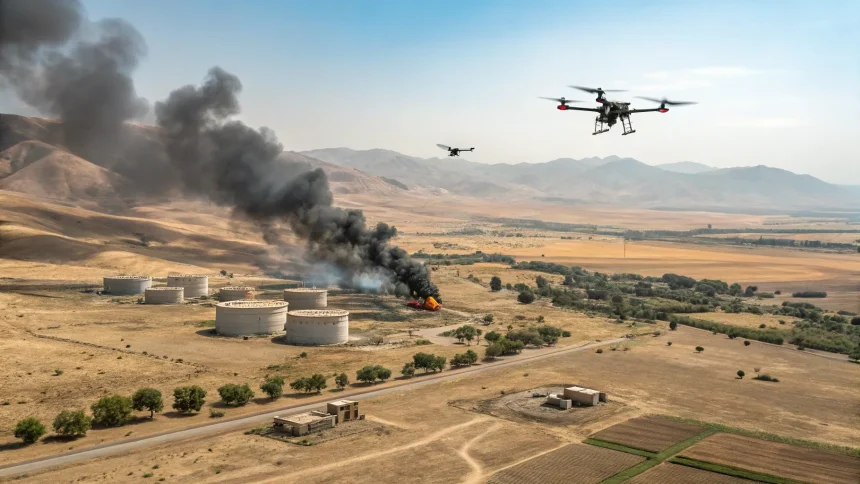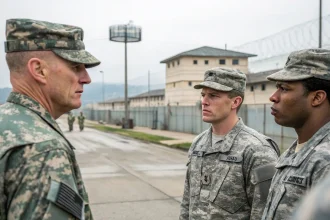Drones targeted the Khormala and Sarsang oil fields in Iraq’s Kurdistan region, according to recent reports. The attacks mark the latest security incident in this oil-rich northern territory, which has experienced periodic violence affecting its energy infrastructure.
Attack Details
The drone strikes specifically hit the Khormala and Sarsang oil fields, two significant energy production sites in Kurdistan. While the full extent of damage remains unclear, such attacks typically aim to disrupt oil production operations in the region.
The Kurdistan region of Iraq operates with significant autonomy from the central government in Baghdad, including independent management of its substantial oil reserves. These fields represent important economic assets for the Kurdish Regional Government (KRG).
Regional Context
The Kurdistan region has been developing its oil sector for years, often amid tensions with Iraq’s central government over resource control and revenue sharing. The Khormala field is located near Kirkuk, while Sarsang sits in the northwestern part of the region.
These drone strikes occur against a backdrop of periodic security challenges in the area. Kurdistan’s oil infrastructure has previously been targeted by various armed groups operating in the region, including militants opposed to Kurdish autonomy.
Oil production in Kurdistan represents a critical economic lifeline for the semi-autonomous region, with exports flowing through pipelines to Turkey and world markets.
Security Implications
Attacks on energy infrastructure carry significant economic and security implications for the region:
- Disruption to oil production affects Kurdistan’s revenue stream
- Security concerns may impact foreign investment in the oil sector
- Such incidents can escalate tensions between various political factions
The targeting of these specific fields suggests a strategic attempt to impact Kurdistan’s economic stability. Oil revenues fund much of the KRG’s operations and public sector salaries.
Regional security forces typically increase protection measures around critical infrastructure following such incidents, though the remote nature of many oil facilities makes comprehensive security challenging.
International Response
International oil companies operating in Kurdistan closely monitor security situations that might affect their personnel and operations. Several major and mid-sized energy firms have investments in the region’s oil sector.
Foreign governments with interests in Iraq’s stability often condemn attacks on energy infrastructure, viewing them as attempts to destabilize the broader region and disrupt global energy supplies.
The United States and other coalition partners maintain military presence in parts of Iraq and have previously provided security assistance to protect critical infrastructure.
As investigations into the drone strikes continue, regional authorities will likely assess whether additional security measures are needed to protect these valuable economic assets from future attacks.









